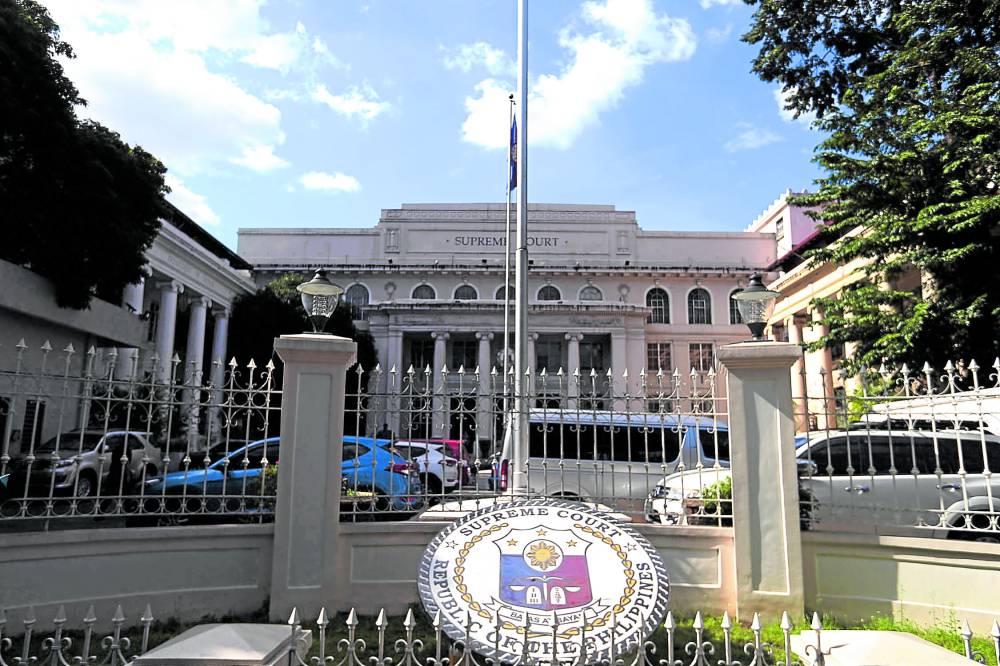SC lowers penalty for father-killer

The Supreme Court has affirmed the conviction of a man for parricide but reduced his penalty after finding that his sudden outburst of uncontrolled emotions, triggered by years of abuse from his father, qualifies as passion or obfuscation—a mitigating factor that can reduce the punishment for the crime.
“The Court deems the parricide in this case as a product of a sudden surge of the accused’s bottled-up feelings caused by paternal neglect since childhood, detonated by the usual hurtful acts toward him by his father, or even just the mere presence of the latter, being the accused’s chronic abuser,” the high tribunal’s First Division said in the decision on G.R. No. 275130 promulgated on May 7 and made public on Monday.
It dismissed the appeal of the respondent, Leopoldo Singcol, who challenged the Court of Appeals (CA) decision that upheld his conviction for parricide and homicide.
Under Article 246 of the Revised Penal Code (RPC), parricide is punishable by reclusion perpetua or the death penalty.
But the Supreme Court said that since there was a mitigating circumstance and no aggravating factor when Singcol committed the crime, the penalty to be imposed is reclusion perpetua (imprisonment of between 20 and 40 years, with a possibility of parole after 30 years) following Article 63 of the RPC.
Singcol was indicted in 2006 for frustrated murder, murder and parricide in the incident dating back to 1986. But the cases against him were archived until his arrest in 2022 in Zamboanga.
Based on court records, Singcol was having breakfast when his father arrived, carrying a bolo. An argument broke out between them and his father attempted to attack him but stumbled and fell.
Singcol then grabbed the bolo and stabbed his father in the chest, killing him.
Shocked by what he had done, he held his father, asked for forgiveness, and then cut his own throat and abdomen.
On his way to a nearby spring afterward, Singcol met his sister-in-law and her two-year-old son. He stabbed her, killing her, and injured her son, who survived.
Not in his right mind
During the trial, Singcol admitted stabbing his father, sister-in-law and the child but said that at the time, he was not in his right mind.
A Regional Trial Court convicted him of parricide for killing his father and murder for killing his sister-in-law, a ruling upheld by the CA.
While the Supreme Court agreed with both courts that self-defense was not applicable in this case, it ruled that passion or obfuscation should be considered as a mitigating factor or circumstance that reduces the penalty for parricide.
“What catches the court’s attention but escapes its understanding, and which were not at all considered by the courts a quo, are the events that transpired immediately after accused-appellant stabbed Andres (Singcol’s father),” the high tribunal said in the decision penned by Associate Justice Ramon Paul Hernando.
It pointed out that upon seeing his father bloodied and motionless, Singcol embraced him and asked for his forgiveness. He then got a pair of scissors, which he used to slice his own throat and abdomen.
“While the story of Andres’s abusive parenting rested entirely on the sole account of accused-appellant, the latter’s actions of slicing his own neck and stomach spoke louder than his words and corroborated his version of maltreatment,” the high court said.
Citing Singcol’s narrations, as well as his “extreme and illogical acts of self-harm” immediately after he killed his father, the Supreme Court said it was impelled to consider the parricide as a “fit of uncontrolled emotions.”
“Accused-appellant’s violent stance against Andres was to be expected and symptomatic of passion and obfuscation,” it added.

















